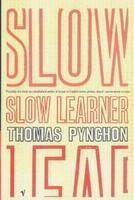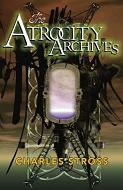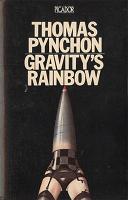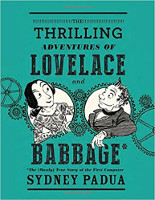 As a US-born, raised (and now living) in Paris, English-writing author of half-French and half-Vietnamese origin Aliette de Bodard has both the background/grounding in and the interest to explore non-Western cultures and settings in her novels and short stories in a convincing way. She meanwhile has 12 books of varying lengths to her name, and has won a number of awards for her work, including BSFA and Nebula Awards. She writes across SF, Fantasy, and Alternate History settings, although frequently her stories are hard to assign to one or the other, never mind her series which can combine several in a very natural way. The book at hand, In the Vanishers' Palace, is not part of any of her series/universes (Aztec, Xuya, Domion of the Fallen), but is a Việt story and thus naturally closer to her Xuya ones, even if I have not found anything which would connect it to either the historical or future settings.
As a US-born, raised (and now living) in Paris, English-writing author of half-French and half-Vietnamese origin Aliette de Bodard has both the background/grounding in and the interest to explore non-Western cultures and settings in her novels and short stories in a convincing way. She meanwhile has 12 books of varying lengths to her name, and has won a number of awards for her work, including BSFA and Nebula Awards. She writes across SF, Fantasy, and Alternate History settings, although frequently her stories are hard to assign to one or the other, never mind her series which can combine several in a very natural way. The book at hand, In the Vanishers' Palace, is not part of any of her series/universes (Aztec, Xuya, Domion of the Fallen), but is a Việt story and thus naturally closer to her Xuya ones, even if I have not found anything which would connect it to either the historical or future settings.
But even if this is set in a world of it's own, it hopefully won't remain like that!
The story kicks off in an (unnamed) village, where Oanh, the village head's child is found to be sick from a genetic virus. Yện, a scholar trapped in the village as she did not pass the exam which would take her to the court, attends together with her mother, the village healer. There is nothing that her mother can do to help, except use her (limited) magic abilities to call a dragon to help.
But whilst Vu Côn, the dragon called, saves Oanh, this comes at a price; and the village elders give her Yện, mainly because she is of less use, less value to them than her mother. But instead of the expected painful death Yện is taken to the palace where the dragon lives, and put to work teaching her children.
Doesn't this sound like classic Fantasy to you, maybe with an Eastern slant? Except for the genetic virus, maybe? This world is much more complex. Here once lived, and ruled, the Vanishers. But when they left (and I have no idea if they were known as Vanishers before that!) they threw out all their toys, poisoned, twisted and broke the world, and left behind loads of technological artefacts, creatures and things roaming the wilds, all kinds of mutating genetical deceases, and a palace, which is now being inhabited by Vu Côn, one of their former servants.
But whilst Yện teaches the twins, dragons, in the teachings of the Broken-World-Teacher and the rules of filial piety she does not seem to notice that they are different, not really dragons like her master. But maybe living whilst expecting to be dead, or to be violently dying at any point, and living in a Vanisher house/palace with nausea-inducing doors, and rooms with improbable geometry ("their idea of geometry wasn't quite ours") of course provides plenty of distractions of its own, never mind her attraction to the dragon Vu Côn.
Vu Côn herself is also a healer (how's that for symmetry!(+), both to other dragons, but also to humans who petition her, using both magic, but also the technology available to her in the Vanisher's palace.
I don't really want to spill (and spoil) more of the story, it worth reading and discovering it yourself. But I can assure you that it feels complex - in the way the plot unrolls, in expression, in the aims of the protagonists, in their desires and the interrelation of these. In the relationships playing out, changing. The whole setting is posed on the brink of change, in ever so many ways and levels which makes it deliciously unpredictable!
This is steeped in cultural references, family ties, forms of address, filial piety as a concept, complex and evolving parent/child relationships, prescriptions on behaviour, taboos...
I don't know if my lack of background awareness, of cultural knowledge really allows me to really judge this, to have an opinion about this which is not purely preconception and ignorance, to do this justice. So, these are the opinions of an outsider, less than informed, looking in on a world he does not understand, not even in derivation. Then again, I would expect this to apply to a substantial part of the potential readership for the story, and for those I can speak to some extent. Lack of knowledge as qualification? It's a new claim for me...
I frequently find mixes of both technology and magic in the same world to be uneasy bedfellows, so I was interested in how Aliette would handle this here, given her penchant for well-execute cross-cultural approaches.
From the point of view of the villages there is no real difference, of course, fully in line with Asimov's famous paradigm. And from my point of view I'm still not sure, after reading to the end, if magic and technology are the same thing, or different and separate/complementary in this world. Never mind if there is one, or several types of magic. Or if they also are only different expressions of the same thing.
But I am sure that, in the end, I didn't care, it didn't matter, and the story and the world it is set in worked, which is rather an achievement in my experience for such a setting.
One of the things which really stuck out for me, culturally as well as shaping and expressing the complex and changing relationships in the story are the pronouns the author uses - neuter (they, them) for singular individuals, and female (she, her), which appears to be related to familiarity, formality, and not really gender. I'm not sure if that's more of a cultural thing I'm ignorant about (although I know that Vietnamese does have complex structure of personal pronouns, so this might be a transposition of that), or an attempt to break the endlessly trodden-in structures in a fantastical setting, akin to what Ann Leckie did in her Ancillary series.
One thing which was rather depressingly realistic in this fantastical setting was that, even if humanity is not the major destroying factor in the story (and it possibly might be fascinating to pull this apart into human/spirits/Vanishers as a simile for different parts of humanity and human society. Even if I don't think that's what the author does/intended) we still see how humanity is entirely capable of being destructive, horrible, cruel, and self-centred even at the reduced societal level they are set as here.
So here you have it – Aliette provides us with a world where spirits and dragons are as much part of as technology is. I'm not sure what this is, if you really want to classify and pigeonhole it. Not SF, really. Not Fantasy, either. But clever, that it is for sure.
And whilst this is, in it's setting, reminiscent of the western Beauty & Beast trope, and I at times wondered about Stockholm syndrome, I really don't think that much should be made of this possible parallel.
The story also does not need this - It is fascinating, both for the setting (of which I'd love more), but all the more so for the shifting relationships of the characters, the changing levels of power over each other; all set in a world where the top predators have left amongst their own hubris, breaking their playthings in the process and leaving everybody else to deal with it.
And – I feel that the end of the book isn't really the end of the story. This is a beginning, not an ending. And I sincerely hope to hear more.
More Aliette de Bodard
Title: In the Vanisher’s Palace
Author: Aliette de Bodard
Reviewer: Markus
Reviewer URL: http://thierstein.net
Publisher: JABberwocky Literary Agency/Zeno
Publisher URL: http://www.awfulagent.com
Publication Date: Oct 2018
Review Date: 181116
ISBN: 9781625673749
Pages: 133
Format: ePub
Topic: SF
Topic: Dystopia
Thanks to the publisher for the review copy.













